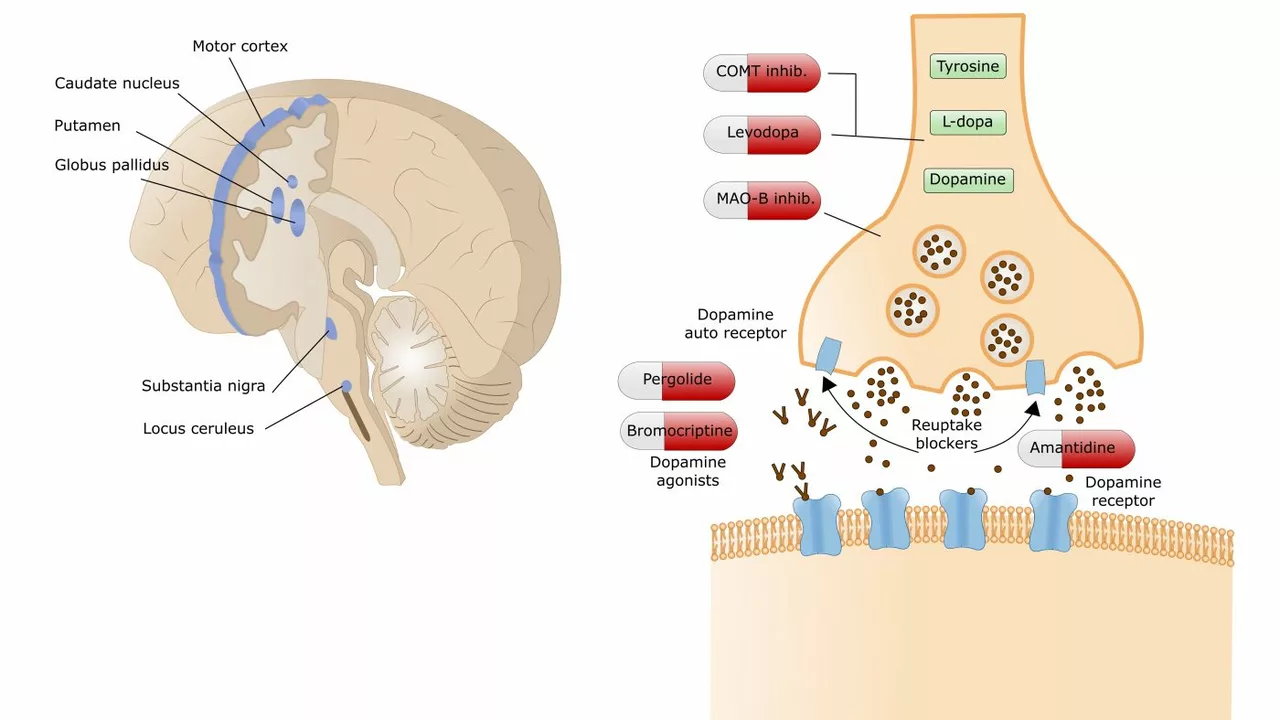Understanding Parkinson's Disease
The journey towards understanding Parkinson's disease is a complex one. This neurological disorder, characterized by the death of dopamine-producing cells, manifests itself in a variety of physical symptoms ranging from tremors and stiffness to impaired balance and difficulty walking. While the exact cause of Parkinson's is unknown, research has indicated a combination of genetic and environmental factors may be responsible. In the fight against this disease, researchers have turned their attention towards calcitriol, the active form of vitamin D, for its potential protective benefits.
Introduction to Calcitriol
Calcitriol, also known as 1,25-dihydroxyvitamin D3, is the most active form of vitamin D in the human body. This hormone plays a key role in calcium absorption, bone health, and immune system regulation. Recent studies have suggested that calcitriol may also play an essential role in protecting the brain against neurodegenerative disorders like Parkinson's disease.
The Connection between Calcitriol and Neurodegeneration
The connection between calcitriol and neurodegeneration is an emerging field of study. Several studies have shown that calcitriol has neuroprotective effects and can reduce inflammation, one of the key factors associated with neurodegeneration. By reducing inflammation, calcitriol may help to protect brain cells from damage and slow the progression of neurodegenerative diseases.
Calcitriol and Parkinson's Disease
Research indicates a potential link between Parkinson's disease and low levels of calcitriol. Studies have shown that people with Parkinson's often have lower levels of vitamin D, leading researchers to hypothesize that increased calcitriol could have a protective effect on the brain and potentially slow the progress of the disease.
How Calcitriol Protects the Brain
Calcitriol protects the brain by reducing inflammation, modulating the immune system, and promoting nerve growth. These benefits make it an intriguing potential therapy for neurodegenerative diseases. Calcitriol's anti-inflammatory properties can help protect neurons from damage, while its ability to promote nerve growth could potentially aid in the repair of damaged neurons.
Calcitriol as a Potential Treatment for Parkinson's Disease
While more research is needed, calcitriol's neuroprotective effects suggest it could be a potential treatment for Parkinson's disease. Some studies have shown that calcitriol can improve motor function in animal models of Parkinson's, suggesting it could have similar effects in humans.
The Current State of Research
Despite promising findings, research into calcitriol and Parkinson's disease is still in the early stages. So far, most studies have been conducted in animals or in vitro, and while these studies have shown promising results, more research is needed to confirm these findings in humans.
The Future of Calcitriol and Parkinson's Disease
The future of calcitriol and Parkinson's disease looks promising, but there is still a long way to go. As more research is conducted, we will gain a better understanding of how calcitriol works to protect the brain and whether it can be used as a treatment for Parkinson's disease.
Conclusion: The Promise of Calcitriol
In the fight against Parkinson's disease, calcitriol presents a promising potential solution. With its neuroprotective properties and potential to slow the progression of the disease, calcitriol could be a game-changer in the treatment of Parkinson's. However, more research is needed to fully understand the role of calcitriol in Parkinson's disease and neurodegeneration.


I've been reading up on vitamin D and brain health lately. It's wild how something so simple could have such deep effects. I wonder if low calcitriol levels are a cause or just a side effect of Parkinson's. Either way, it's worth looking into more.
My grandma had PD and always took supplements. She never said it helped her tremors, but she did seem less fatigued.